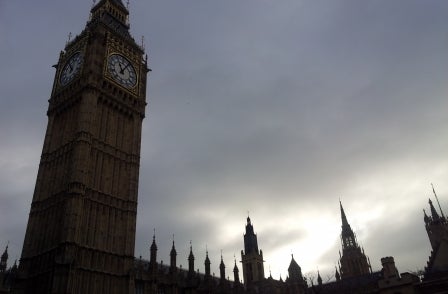
The Government today published a revised blueprint for press regulation which is set to go for approval by the Privy Council at the end of the month.
The Parliament-backed scheme is set out in a Royal Charter which provides for the creation of a recognition body to license any future regulator set up by newspaper and magazine publishers.
The new Royal Charter addresses concerns raised by the newspaper and magazine industry about the cost of running a libel disputes arbitration service. But it remains to be seen whether this will be enough to persuade a so far reluctant press to sign up to it.
The revised Royal Charter (download here with changes highlighted) differs from the document agreed between the three main political parties and campaign group Hacked Off back in March in the following key ways:
Arbitration:
Unlike the rejected publishers’ Royal Charter, the provision of a libel disputes arbitration service by publishers is compulsory under this Parliament-backed scheme. But instead of making it free for use by claimants, it now allows the regulator to charge “small administration fee” to cover the cost of the initial assessment of an application. This is likely to total at least a few hundred pounds and could address concerns about speculative and vexatious claims. The new document also says that if the new arbitration process turns out to cause “serious financial harm to subscribers who publish only on a local or regional basis” then they may be excused from participating in it.
Code Committee:
The previous Royal Charter said that membership of the Committee which draws up the Editors’ Code of Practice should be made up equally of editors, journalists and members of the public. Currently it is just editors. The new wording states only: “The standards code must ultimately be the responsibility of, and adopted by, the board, advised by a Code Committee which may comprise both independent members of the board and serving editors. Serving editors have an important part to play although not one that is decisive.”
The Parliament-backed Royal Charter provides for an appointment process to the Recognition Panel which is completely independent of the press.
This Recognition Panel will decide whether or not the press regulator is meeting the detailed criteria set out in today’s document.
A regulator needs official recognition from a Royal Charter-backed Recognition Panel to protect publishers from the threat of exemplary damages in libel and privacy claims as set out in the Crime and Courts Bill 2013.
It is also intended that the libel disputes arbitration service is another incentive for publishers to join by providing a way to settle libel claims without incurring huge legal fees.
Today’s document makes clear that the newspaper and magazine industry will themselves have to foot the bill for funding the recognition body, with their regulator having to pay up to £300,000 a year towards funding it plus up to £220,000 to pay for the regular reviews which are required.
Director of campaign group Hacked Off Brian Cathcart said: "We note that in the last-minute technical changes to the charter there have been further concessions to the press industry lobby, notably that it now permits an administrative charge for members of the public to use the new arbitration service.
“This is not what Lord Justice Leveson recommended and may well deter some members of the public from seeking redress when they have been wronged by news publishers.
"We trust that those newspaper organisations which have been demanding this change – notably the local and regional press – will now accept that they have no reason to object to the system and will fully embrace the Charter process.
"The way is now open to create a system of independent, effective press self-regulation that will benefit the public and poses no threat whatever to freedom of expression.
“Ordinary people will have far better redress when things go wrong, and the Charter will also benefit the industry, giving it a chance to rebuild trust and show its commitment to high standards.”
Newspaper publishers issued a guarded welcome to the new charter while they study it fully.
The Industry Steering Group released a statement which still questioned the level of political involvement.
A spokesman said: “We welcome the fact that,after more than six months, politicians are finally seeing some of the flaws in their unacceptable and unilateral March 18 Charter. We will study their latest proposals closely.
“However this remains a Charter written by politicians, imposed by politicians and controlled by politicians. It has not been approved by any of the newspapers or magazines it seeks to regulate.
“Meanwhile the industry’s Charter was rejected by eight politicians, meeting in secret, and chaired by the same politician who is promoting the politicians' Charter.
“Lord Justice Leveson called for ‘voluntary, independent self-regulation’ of the press. It is impossible to see how a regulator operating under rules imposed by politicians, and enforced by draconian and discriminatory provisions for damages and costs in civil cases, could be said to be either voluntary or independent.”
Email pged@pressgazette.co.uk to point out mistakes, provide story tips or send in a letter for publication on our "Letters Page" blog
